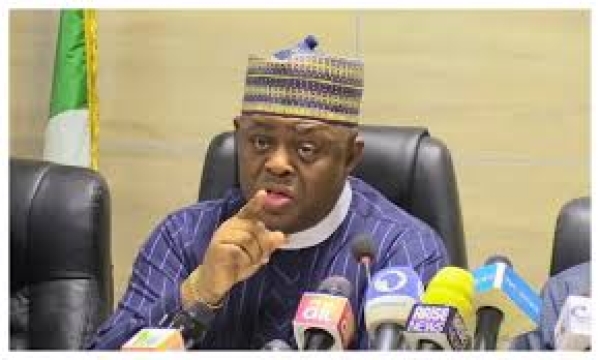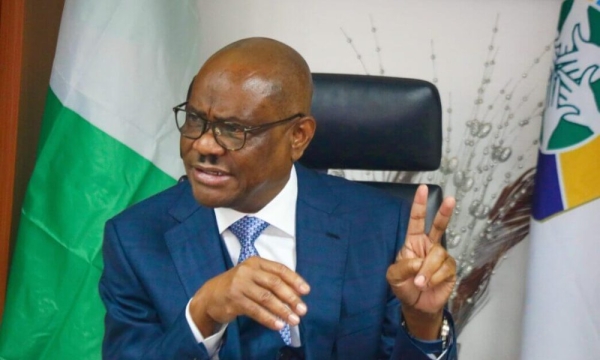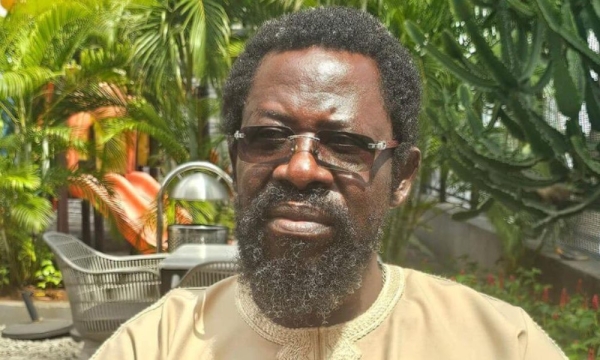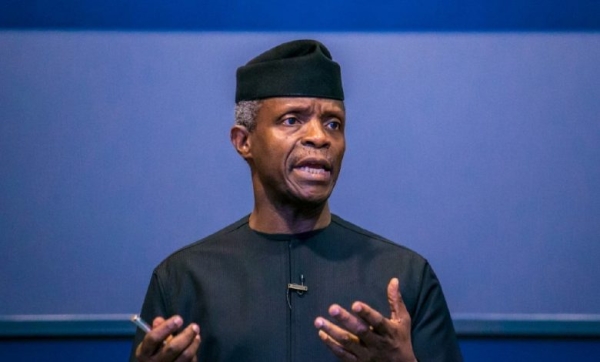TOP NEWS
Reuben's View
Latest News
Search
MOST READ
-
Gov Sule declares 2027 Senate ambition for Nasarawa north
-
Tinubu’s 2nd year anniversary: Wike fixes 19 days for projects commissioning
-
PDP Governor Eno Holds Private Meeting With VP Shettima, Says Tinubu’s Two Years Are ‘Wonderful’
-
Missing 26-year-old banker found dead in Lagos
-
Father of WASSCE student killed by police was driving against traffic – Oyo Govt
-
Tinubu’s meeting with Pope Leo XIV is an insult to Christianity — Babachir
-
PDP has incurable virus, we’re not considering it for coalition — Babachir
-
[OPINION] Omolayole’s strike against malaria - Lekan Sote
-
Lawmakers Elected To Partner Not Confront Executive — Akpabio
-
EFCC arraigns bankers, three others for alleged cybercrime in Lagos
-
Akpabio Gives Out N2bn Cash Grants, Vehicles, Equipment, Scholarships to Constituents
647 times -
Tinubu approves armed forest guards to secure Nigeria’s 1,129 forests
551 times -
[OPINION] Let’s move JAMB’s Oloyede to INEC - Tonnie Iredia
518 times -
“Lord behold our tears” – FFK reacts to terrorists feeding newborns to dogs
495 times -
Live Vultures, Tortoises ‘Buried’ Inside – Abia Govt Speaks on Why Otti Has Avoided New Govt House
470 times -
What I Told Tinubu After He Asked Me To Make Peace With Fubara – Wike
436 times -
Nigeria Will Be Worse Than Somalia In The Next Few Years’ – Pat Utomi
430 times -
Hardship: We’re all sitting on kegs of gunpowder – Obasanjo
426 times -
System Glitch: Oloyede Should Be Fired – Farotimi
417 times -
“Justice is at risk” – Osinbajo raises alarm, says Nigeria’s legal profession crumbling under corruption
407 times








![[OPINION] Zulum And The Surge In Insurgency - Reuben Abati [OPINION] Zulum And The Surge In Insurgency - Reuben Abati](https://reubenabati.com.ng/cache/mod_bt_contentslider/ad6e52c43f66e3cf537b06ad38aa93b6-8ac05a2894b5e82aeee611e792497153_XL.jpg)
![[OPINION] Defections And Threat Of One-Party State - Reuben Abati [OPINION] Defections And Threat Of One-Party State - Reuben Abati](https://reubenabati.com.ng/cache/mod_bt_contentslider/e16351efb50f01266cc28b7377bd5e83-90b1922af682fff68852fa7fab5a4331_XL.jpg)
![[OPINION] Pope Trump, Adebanjo And Other Stories - Reuben Abati [OPINION] Pope Trump, Adebanjo And Other Stories - Reuben Abati](https://reubenabati.com.ng/cache/mod_bt_contentslider/a9c28326249471b0c6d135375d9aa6d3-66656381f38ceca0faf1a84f4c1885dd_XL.jpg)
![[OPINION] CBEX Wealth Chasers, NDIC And The Fate Of Depositors - Reuben Abati [OPINION] CBEX Wealth Chasers, NDIC And The Fate Of Depositors - Reuben Abati](https://reubenabati.com.ng/cache/mod_bt_contentslider/e7c29125e793371f688b9def0c150948-867aa1263f279020e1b930969b024a70_XL.jpg)
![[OPINION] Pope Francis (1936 – 2025) - Reuben Abati [OPINION] Pope Francis (1936 – 2025) - Reuben Abati](https://reubenabati.com.ng/cache/mod_bt_contentslider/9df20a858100040a45e2fc6915d65f41-c0395aa98d8919afead20f020215aa2b_XL.jpg)
![[OPINION] Plateau, Tsiga and Trump - Reuben Abati [OPINION] Plateau, Tsiga and Trump - Reuben Abati](https://reubenabati.com.ng/cache/mod_bt_contentslider/d4ff657a4976c08f133a5993db7ca3de-076f7f795e47e1dc74a28ca93d3c698e_XL.jpg)
![[OPINION] The Uromi 16 And The Problem With Nigeria - Reuben Abati [OPINION] The Uromi 16 And The Problem With Nigeria - Reuben Abati](https://reubenabati.com.ng/cache/mod_bt_contentslider/848d0c6943c9a9cb7639e8f5640d2cbf-4b585f7414a3fc875b761851d4c5fcd4_XL.jpg)
![[OPINION] Breakfast With The Soludos - Reuben Abati [OPINION] Breakfast With The Soludos - Reuben Abati](https://reubenabati.com.ng/cache/mod_bt_contentslider/a98b5c30f61dcb10378fdba9f5e472ab-33b747862875f50d863e709f5955da5d_XL.jpg)
![[OPINION] The Emerging Coalition Against Tinubu/APC - Reuben Abati [OPINION] The Emerging Coalition Against Tinubu/APC - Reuben Abati](https://reubenabati.com.ng/cache/mod_bt_contentslider/ddd6416fbaa008a5bcbc568f0e3c8857-02972c9f0dee40a6ad85830afbb49758_XL.jpg)
![[OPINION] Nasir El-Rufai’s Defections: PDP, CPC, APC, SDP - Reuben Abati [OPINION] Nasir El-Rufai’s Defections: PDP, CPC, APC, SDP - Reuben Abati](https://reubenabati.com.ng/cache/mod_bt_contentslider/817d1e0c4d951b18f15f406968204870-61d46cc1859ac5d4f70406214a7d7e4f_XL.jpg)
![[OPINION] A World Of Godfathers - Reuben Abati [OPINION] A World Of Godfathers - Reuben Abati](https://reubenabati.com.ng/cache/mod_bt_contentslider/f282a08e8e116be2577cc430882505bc-6d66582218d28730d47a7b9a32e18004_XL.jpg)
![[OPINION] Babangida’s Book - Reuben Abati [OPINION] Babangida’s Book - Reuben Abati](https://reubenabati.com.ng/cache/mod_bt_contentslider/c8905774fa75570e79f747809f6c142f-4452414e756ce827f8bc4b72b9376062_XL.jpg)
![[OPINION] A Word For Babachir Lawal - Femi Fani-Kayode](https://reubenabati.com.ng/media/k2/items/cache/ef3c3ac64b2a46ff9f20b686c33c5ba3_XL.jpg?t=-62169984000)



![[OPINION] “If Na Your Papa Dey There Nko?” — One Man’s Street Truth That Nigeria Needs To Hear About Mr. President And Nigeria’s First Son - Isaac Asabor](https://reubenabati.com.ng/media/k2/items/cache/1dec3bc1d0c4295cdfffd794ef33277d_XL.jpg?t=-62169984000)
![[OPINION] How Akpabio Turned Montesquieu’s Separation Of Powers On Its Head - Isaac Asabor](https://reubenabati.com.ng/media/k2/items/cache/8dcfdfed3a7a4f910e15527de4b7d663_XL.jpg?t=-62169984000)
![[OPINION] Peter Obi, Do Not Be The Desperate Graduate Job Seeker, It Is Presidency Or Nothing In 2027 - Isaac Asabor](https://reubenabati.com.ng/media/k2/items/cache/2a5aff3dd0ba92b0e7127f97d75fc752_XL.jpg?t=-62169984000)
![[OPINION] Nigeria is no Nation of Tribesmen - Kayode Komolafe](https://reubenabati.com.ng/media/k2/items/cache/0fc4618c5d6e10f1a439498082de6d68_XL.jpg?t=-62169984000)









![[PRESS RELEASE] MAN Calls For Urgent Interest Rate Cut To Protect Nigeria’s Industrial Base](https://reubenabati.com.ng/media/k2/items/cache/1add765bb97c3e4d9dd9701bb40d967d_XL.jpg?t=-62169984000)
















![[OPINION] Make good governance, not voting, compulsory in Nigeria - Jide Ojo](https://reubenabati.com.ng/media/k2/items/cache/cfa85a1382f04970a08db0511dec49b2_XL.jpg?t=-62169984000)
![[OPINION] Omolayole’s strike against malaria - Lekan Sote](https://reubenabati.com.ng/media/k2/items/cache/591ae9cc333a02c3b6c135b12b0b5f0a_XL.jpg?t=-62169984000)
![[PRESS STATEMENT] Yellow Journalism: No Lady is On Trial For Converting To Christianity, Zamfara Gov’t Clarifies - Sulaiman Bala Idris](https://reubenabati.com.ng/media/k2/items/cache/c9f1f999b0826953f1bab072e1b7e4be_XL.jpg?t=-62169984000)


![[OPINION] A Word For Babachir Lawal - Femi Fani-Kayode [OPINION] A Word For Babachir Lawal - Femi Fani-Kayode](https://reubenabati.com.ng/cache/mod_bt_contentslider/dddad76f6e570a6b21d2fa3e60dda568-ef3c3ac64b2a46ff9f20b686c33c5ba3_XL.jpg)



![[OPINION] “If Na Your Papa Dey There Nko?” — One Man’s Street Truth That Nigeria Needs To Hear About Mr. President And Nigeria’s First Son - Isaac Asabor [OPINION] “If Na Your Papa Dey There Nko?” — One Man’s Street Truth That Nigeria Needs To Hear About Mr. President And Nigeria’s First Son - Isaac Asabor](https://reubenabati.com.ng/cache/mod_bt_contentslider/585db9c3f81a98d396f138d07653bcf5-1dec3bc1d0c4295cdfffd794ef33277d_XL.jpg)
![[OPINION] How Akpabio Turned Montesquieu’s Separation Of Powers On Its Head - Isaac Asabor [OPINION] How Akpabio Turned Montesquieu’s Separation Of Powers On Its Head - Isaac Asabor](https://reubenabati.com.ng/cache/mod_bt_contentslider/199b73a8f27186c86b6df285c5ff446c-8dcfdfed3a7a4f910e15527de4b7d663_XL.jpg)
![[OPINION] Peter Obi, Do Not Be The Desperate Graduate Job Seeker, It Is Presidency Or Nothing In 2027 - Isaac Asabor [OPINION] Peter Obi, Do Not Be The Desperate Graduate Job Seeker, It Is Presidency Or Nothing In 2027 - Isaac Asabor](https://reubenabati.com.ng/cache/mod_bt_contentslider/a1a4fa9a3657df7c83e9f87aa03c6eb9-2a5aff3dd0ba92b0e7127f97d75fc752_XL.jpg)
![[OPINION] Nigeria is no Nation of Tribesmen - Kayode Komolafe [OPINION] Nigeria is no Nation of Tribesmen - Kayode Komolafe](https://reubenabati.com.ng/cache/mod_bt_contentslider/12d646e29fa577d4b15e9596fc1b3c58-0fc4618c5d6e10f1a439498082de6d68_XL.jpg)









![[PRESS RELEASE] MAN Calls For Urgent Interest Rate Cut To Protect Nigeria’s Industrial Base [PRESS RELEASE] MAN Calls For Urgent Interest Rate Cut To Protect Nigeria’s Industrial Base](https://reubenabati.com.ng/cache/mod_bt_contentslider/035f5c1788ab5f188b2a16b77ac6c90d-1add765bb97c3e4d9dd9701bb40d967d_XL.jpg)
















![[OPINION] Make good governance, not voting, compulsory in Nigeria - Jide Ojo [OPINION] Make good governance, not voting, compulsory in Nigeria - Jide Ojo](https://reubenabati.com.ng/cache/mod_bt_contentslider/0d6761277dc18a196ba1bc3690f0a7b7-cfa85a1382f04970a08db0511dec49b2_XL.jpg)
![[OPINION] Omolayole’s strike against malaria - Lekan Sote [OPINION] Omolayole’s strike against malaria - Lekan Sote](https://reubenabati.com.ng/cache/mod_bt_contentslider/631c36e3edc06a618a6cf2cbd3c35d50-591ae9cc333a02c3b6c135b12b0b5f0a_XL.jpg)
![[PRESS STATEMENT] Yellow Journalism: No Lady is On Trial For Converting To Christianity, Zamfara Gov’t Clarifies - Sulaiman Bala Idris [PRESS STATEMENT] Yellow Journalism: No Lady is On Trial For Converting To Christianity, Zamfara Gov’t Clarifies - Sulaiman Bala Idris](https://reubenabati.com.ng/cache/mod_bt_contentslider/c53f7cd68f018f5b2735ab7af4f79e0b-c9f1f999b0826953f1bab072e1b7e4be_XL.jpg)










![[OPINION] Public Service in Nigeria and the Big Questions of Public Administration - Tunji Olaopa [OPINION] Public Service in Nigeria and the Big Questions of Public Administration - Tunji Olaopa](https://reubenabati.com.ng/cache/mod_bt_contentslider/e10be765c6e0d5710dda07c2f8d9fca7-e8719f381861e1770ba21692032d5fd6_XL.jpg)
![[OPINION] JAMB 2025: Candidate Complaints And Some Suggestions - Babafemi A Badejo [OPINION] JAMB 2025: Candidate Complaints And Some Suggestions - Babafemi A Badejo](https://reubenabati.com.ng/cache/mod_bt_contentslider/13656d1542d5c445464cef98fe47b061-b47b7957ec01e9ad7f1a93a2518f27ba_XL.jpg)







![[OPINION] Zulum And The Surge In Insurgency - Reuben Abati [OPINION] Zulum And The Surge In Insurgency - Reuben Abati](https://reubenabati.com.ng/cache/mod_bt_contentslider/5ab1f6dedfa5b4655f99d0bb5a967232-8ac05a2894b5e82aeee611e792497153_XL.jpg)




![[OPINION] Rethinking Death and Dignity: From Fundraising Committees to Funeral Insurance in Nigeria - Sonny Iroche [OPINION] Rethinking Death and Dignity: From Fundraising Committees to Funeral Insurance in Nigeria - Sonny Iroche](https://reubenabati.com.ng/cache/mod_bt_contentslider/c2558b6d89f66020b3e1b5ec4f6841d6-a520b54adff5637a2bca1ee5bb4082a9_XL.jpg)


















![[OPINION] Dead rotational presidency bill diversionary - Jide Oluwajuyitan [OPINION] Dead rotational presidency bill diversionary - Jide Oluwajuyitan](https://reubenabati.com.ng/cache/mod_bt_contentslider/e617d99a8dc0ebb67f6c4d00a90d50ff-d58fa67c63a1746daf0ff53a5a8000a8_XL.jpg)



![[OPINION] DSS, Shadow Government and ‘Shadow’ Suit - Onikepo Braithwaite [OPINION] DSS, Shadow Government and ‘Shadow’ Suit - Onikepo Braithwaite](https://reubenabati.com.ng/cache/mod_bt_contentslider/18d527dd160615ed8f9874fa7cc404ac-37c3b56921fe57f6b4f8f10afd65cdcf_XL.jpg)
![[OPINION] Catholic Church, the Black Race, Politics, and the USA - Magnus Onyibe [OPINION] Catholic Church, the Black Race, Politics, and the USA - Magnus Onyibe](https://reubenabati.com.ng/cache/mod_bt_contentslider/d5b0efb8efafc38c7e9c46408bf3160c-e4f03571823d3d13d23e9bb9d40264d6_XL.jpg)
![[PRESS RELEASE] NIDCOM Facilitates The Return Of Adeola, The Daughter Of Actress Jumoke George From Mali [PRESS RELEASE] NIDCOM Facilitates The Return Of Adeola, The Daughter Of Actress Jumoke George From Mali](https://reubenabati.com.ng/cache/mod_bt_contentslider/d6b46a9b120e12debeb5a8cd244b79ca-7b664f624ef8733b79f171c8262d8d29_XL.jpg)






![[OPINION] Beautiful but barren - Gabriel Agbo [OPINION] Beautiful but barren - Gabriel Agbo](https://reubenabati.com.ng/cache/mod_bt_contentslider/ed618fa5c43ec6e8c290942f9bf976a2-c86bac5864ccfbe77b95ca360ffcb58f_XL.jpg)
![[OPINION] Banks’ profits, charges and customers’ complaints - Etim Etim [OPINION] Banks’ profits, charges and customers’ complaints - Etim Etim](https://reubenabati.com.ng/cache/mod_bt_contentslider/6b01ce71258df16c8d731fac7092a376-1bb7a7878ed5ee06d5d7802f8628a46b_XL.jpg)

![[OPINION] Telling Self-Acclaimed “Ministers Of God” That “Born Againism” Is Beyond Abstinence From Smoking, Drinking And Womanizing - Isaac Asabor [OPINION] Telling Self-Acclaimed “Ministers Of God” That “Born Againism” Is Beyond Abstinence From Smoking, Drinking And Womanizing - Isaac Asabor](https://reubenabati.com.ng/cache/mod_bt_contentslider/8e3728692bd7ebdf4d7fa8d063c963b8-f481e9d594237543ea4ea83eafb87f23_XL.jpg)
![[OPINION] Dele Momodu At 65: A Journey Of Dedication, Diplomacy, And Distinction - Abdulrofiu Muhammed Temitayo [OPINION] Dele Momodu At 65: A Journey Of Dedication, Diplomacy, And Distinction - Abdulrofiu Muhammed Temitayo](https://reubenabati.com.ng/cache/mod_bt_contentslider/7f17876f390c379d742b0c0c9200c41f-00a096cb68ce9e00fb7f0484c718b47c_XL.jpg)
![[OPINION] Revolution of Values: Prof. Oloyede as a Model of Transformational Leadership - Richard Odusanya [OPINION] Revolution of Values: Prof. Oloyede as a Model of Transformational Leadership - Richard Odusanya](https://reubenabati.com.ng/cache/mod_bt_contentslider/a10ddf487222d1918c0517efe9290338-0067bb6062fc98fec9da2e0799a1d1e7_XL.jpg)






![[OPINION] Tunde Fanimokun and Jakande: The path of our fathers - Owei Lakemfa [OPINION] Tunde Fanimokun and Jakande: The path of our fathers - Owei Lakemfa](https://reubenabati.com.ng/cache/mod_bt_contentslider/958e7fc2fada01baf8c5c653f6a7fdc4-b58601a79e4dcda9084d27c7c7c82380_XL.jpg)


![[OPINION] T47N Later: A Mid-Term Reality Check for State Power - Dakuku Peterside [OPINION] T47N Later: A Mid-Term Reality Check for State Power - Dakuku Peterside](https://reubenabati.com.ng/cache/mod_bt_contentslider/3123b35903ca4d596842ee37e4a94711-e29526a225ce4a9dd13cd4b9aa0be8fb_XL.jpg)
![[OPINION] NNPC’s Ojúl’arí ọ̀rẹ́ ò dé ‘nú - Lasisi Olagunju [OPINION] NNPC’s Ojúl’arí ọ̀rẹ́ ò dé ‘nú - Lasisi Olagunju](https://reubenabati.com.ng/cache/mod_bt_contentslider/57bd4a171e16763451f717413d3009e6-36d998d4da7d257e8ee47696d94fafe1_XL.jpg)
![[OPINION] JAMB, glitches and an inter-tribal war - Lasisi Olagunju [OPINION] JAMB, glitches and an inter-tribal war - Lasisi Olagunju](https://reubenabati.com.ng/cache/mod_bt_contentslider/dea293eca3fe34842aadc0fe34ebc896-05b5e248cb5c0464025c5859af7e3415_XL.jpg)






![European Golden Boot 2024/25 standings [Top 10] European Golden Boot 2024/25 standings [Top 10]](https://reubenabati.com.ng/cache/mod_bt_contentslider/f4131228ca858859240af3b05476708d-8f705b0f4da5dfbd11ab6c0ab89d1017_XL.jpg)


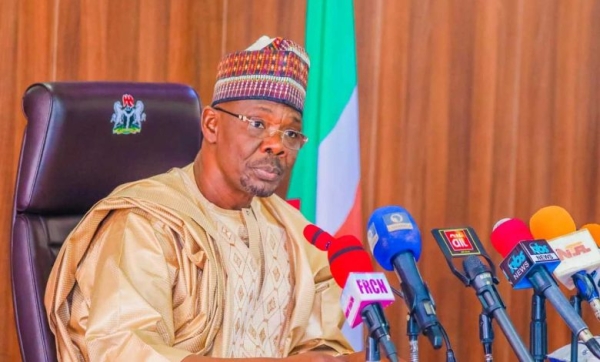
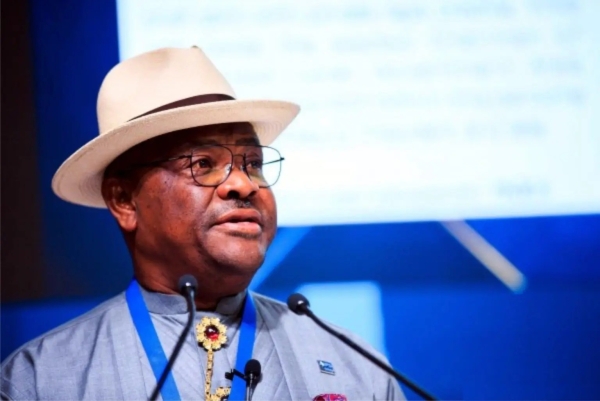
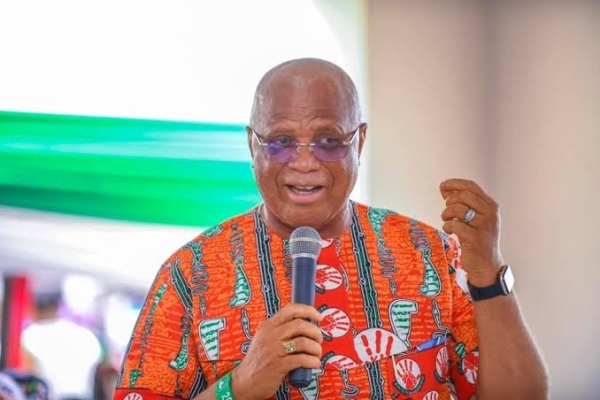

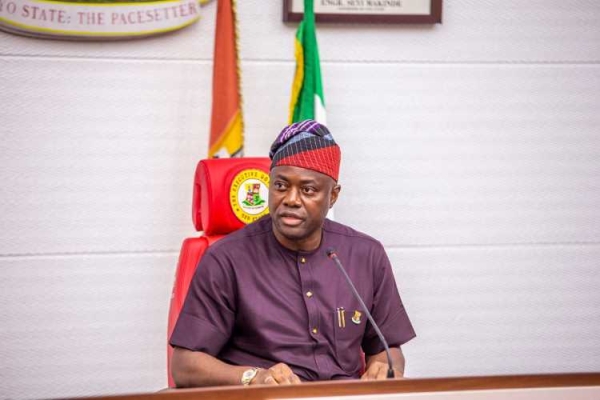
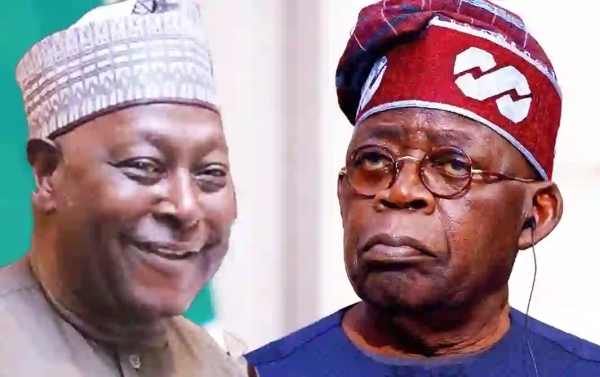
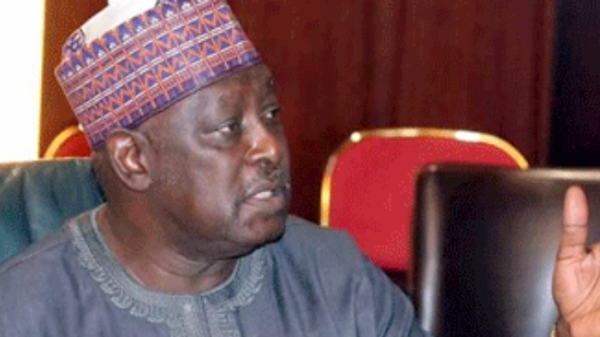
![[OPINION] Omolayole’s strike against malaria - Lekan Sote](/media/k2/items/cache/591ae9cc333a02c3b6c135b12b0b5f0a_XL.jpg)
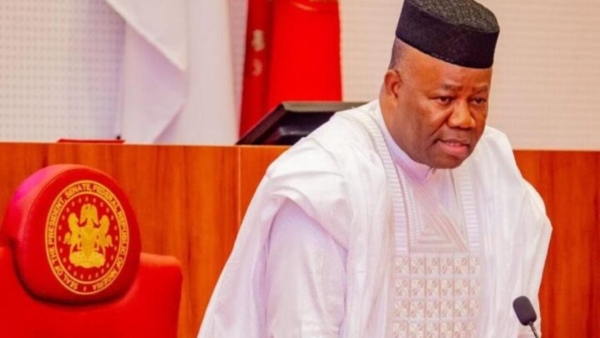
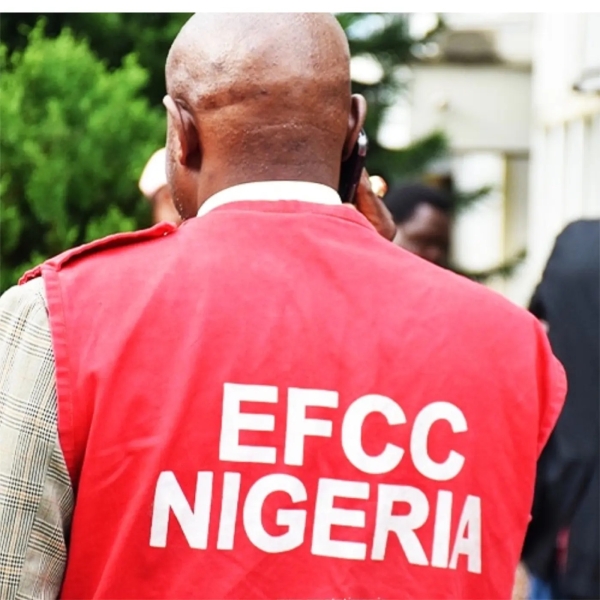


![[OPINION] Let’s move JAMB’s Oloyede to INEC - Tonnie Iredia](/media/k2/items/cache/2c2be4431a5aa89c2ef2c0d42d659e39_XL.jpg)
